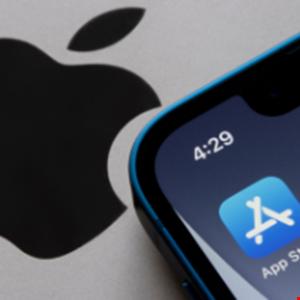- I recommend the Pixel 9 to most people looking to upgrade - especially while it's $250 off
- Google's viral research assistant just got its own app - here's how it can help you
- Sony will give you a free 55-inch 4K TV right now - but this is the last day to qualify
- I've used virtually every Linux distro, but this one has a fresh perspective
- The 7 gadgets I never travel without (and why they make such a big difference)
Apple’s App Store Blocks $2bn in Fraudulent Transactions

Apple’s App Store has successfully intercepted and blocked over $2bn in potentially fraudulent transactions in 2022.
The company revealed the figures in a blog post published on Tuesday, where it also said it rejected nearly 1.7 million app submissions last year. Apple said these rejections were primarily due to the apps’ failure to meet Apple’s high standards for privacy, security and content.
Further, Apple revealed it terminated 428,000 developer accounts and 282 million customer accounts associated with fraud and abuse in 2022.
Overall, the Cupertino-based company said its App Review team checked over 6.1 million app submissions, enabling more than 185,000 developers to publish their first-ever app on the App Store.
“Over the years, Apple has introduced various measures to support an ecosystem that benefits both users and developers,” reads the blog post.
“As a result, the App Store has become a vibrant and innovative platform that attracts over 650 million average weekly visitors worldwide.”
They also reportedly made over 20,000 phone calls to developers to help them address issues that led to app submission rejections.
Apple also prevented the creation of 198 million fraudulent accounts and detected and blocked more than 147 million fraudulent ratings and reviews.
“Apple’s work to keep the App Store a safe and trusted place for users and developers is never done,” reads the post.
“As bad actors evolve their dishonest tactics and methods of deception, Apple supplements its anti fraud initiatives with feedback gleaned from a myriad of channels […] and will continue to develop new approaches and tools designed to prevent fraud from harming App Store users and developers.”
The figures come weeks after Apple patched two zero-day vulnerabilities that were used to attack iPhone, iPad and Mac devices.
Editorial image credit: Tada Images / Shutterstock.com

